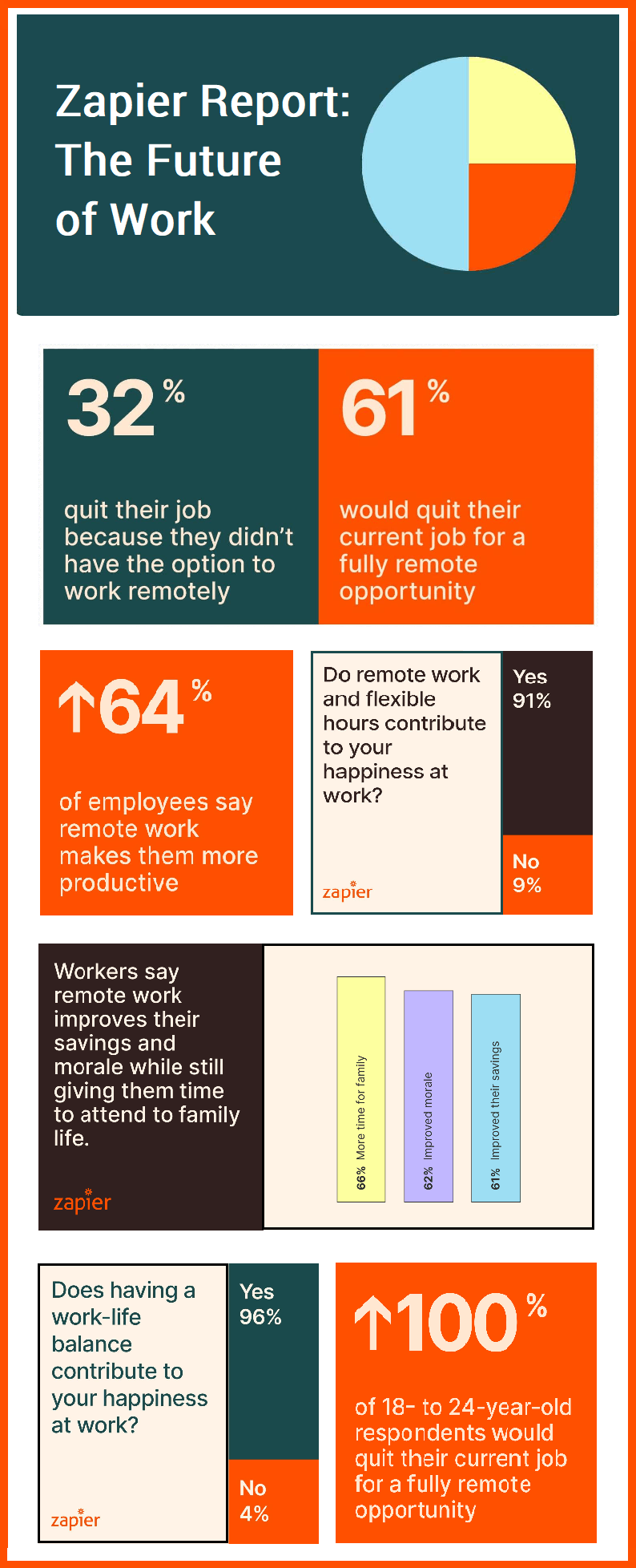Working Remotely Benefits Both Employers and Staff – Even in Healthcare

More Providers Offering Remote/Hybrid
Opportunities for Non-Clinicians
Over the past few years, the boom in telemedicine has proven that the healthcare industry can operate (even thrive) under non-conventional working arrangements.
The pandemic forced medical facilities to transition much of their administrative staff to work from home. According to a 2022 Medical Group Management Association (MGMA) poll, almost 60% of medical group practices shifted their teams to remote or hybrid work in 2021. With today’s continued demand for employment flexibility, healthcare providers are now looking for more ways to implement long-term remote work options, particularly for non-clinicians.
Advantages to Employers
Here are a few reasons more medical employers are relying on remote workers as a long-term staffing solution:

Repurposing Space
As medical providers rely more on remote workers, many will choose to transform their physical office space. Areas formerly dedicated to staff who now work remotely can be repurposed as specialty clinics, outpatient imaging, or examination rooms.
In New York, for example, the state’s largest healthcare provider, Northwell Health, has identified about 500,000 square feet of space that will be converted from support service offices into revenue-generating clinical space, helping them achieve their financial goals.
Improved Performance and Productivity
Studies indicate that remote employees work the equivalent of one more day per week and are 47% more productive than their in-office counterparts.
Working from home empowers employees to function in a way that suits them on their own time. With fewer distractions from other staff members, productivity and performance improve. Remote work also enhances work/life balance, alleviates burnout, and improves overall morale.
Larger Recruiting Pool
By shifting to remote work, healthcare employers can recruit nationally. Qualified candidates need only have reliable internet connectivity, allowing providers to hire the best talent regardless of location.
In addition, staff retention improves because employees who work remotely are more likely to stay with the companies that let them do so. Owl Labs and Global Workplace Analytics recently surveyed more than 1,200 full-time U.S. workers. They found that remote workers are 13% more likely than onsite staff to stay in their current job for the next five years.
Likewise, a 2022 Zapier report revealed that 32% of
knowledge workers
have already quit a job because they were not allowed to work remotely, and 61% would leave their current position to accept a fully remote opportunity.
(See infographic below.)
Reduced Overhead Expenses
Providers who rely on remote workers pay less in overhead expenses, such as utilities, cleaning services, taxes, and office space.
(See sidebar, “Repurposing Space.”)
According to Dave Rietsema, founder and CEO of HR software firm Matchr, “Companies can save up to $11,000 per employee in terms of overhead costs if they switch to remote work.”
--Article Continues Below--

Making It Work for You
Healthcare organizations that have successfully transitioned to a more remote or hybrid work model offer the following suggestions:
Identify Suitable Positions
Non-clinical positions abound in the healthcare industry and many of these jobs can be performed remotely with relative ease. These include:

Medical Employers Who’ve
Plunged into the
Remote Worker Pool
Here are just a few of the larger healthcare providers who have successfully transitioned to remote and/or hybrid work for all or most of their non-clinical staff:
Cleveland Clinic (many national and international locations) Transitioned almost 8,000 non-clinical staff to remote or hybrid work.
Northwell Health (78 locations in New York) Implemented a 100% hybrid work environment across all non-clinical departments.
ID Care (10 locations in New Jersey) Transitioned 60 non-clinical staff to remote or hybrid work.
- Patient intake coordination
- Utilization and claims management
- Medical records management
- Community relations
- Marketing
- Call center work
- Medical billing and coding
- Information technology
- Accounting and finance
- Human resources
For example, the Los Angeles-based AltaMed network successfully transitioned more than 1,000 call center, medical management, IT, and human resources staff to a remote-work model.
Maintain Security and Privacy
Because healthcare entails using confidential personal data, employers must maintain appropriate security.
Fortunately, security systems have evolved from strictly on-premises technology to cloud-based solutions. As a result, IT departments no longer need to fully control all devices. Healthcare organizations can use cloud-based security applications without assuming control of a user’s device. These tools can manage multiple systems regardless of where they originate.
Other security options include virtual private networks (VPNs) and encryption with multifactorial authentication. Providers should also reassess each process involving confidential information within the context of a remote-work paradigm.
Reinforce Employee Engagement
Developing and sustaining camaraderie with colleagues can be a challenge when working remotely. So healthcare providers seeking to embrace the remote-work model must be culturally driven, with an emphasis on communication and connectivity.
Some practices have integrated employee engagement exercises into their routines, such as monthly in-person team meetings, virtual happy hour, and informal get-togethers. The idea is to create a level of engagement that helps build trust between individuals.
Going Forward
American businesses—including care providers—will likely never return to an all-onsite workforce. It’s more probable that workers everywhere will expect increased remote-work flexibility. Prudent healthcare organizations must thoughtfully implement long-term work-from-home solutions if they are to remain competitive.
Sources:
Featured Image: Adobe, License Granted
Forbes
MGMA
HealthTech Magazine
Fortune
Northwell
Health
Recent Posts











Share On: